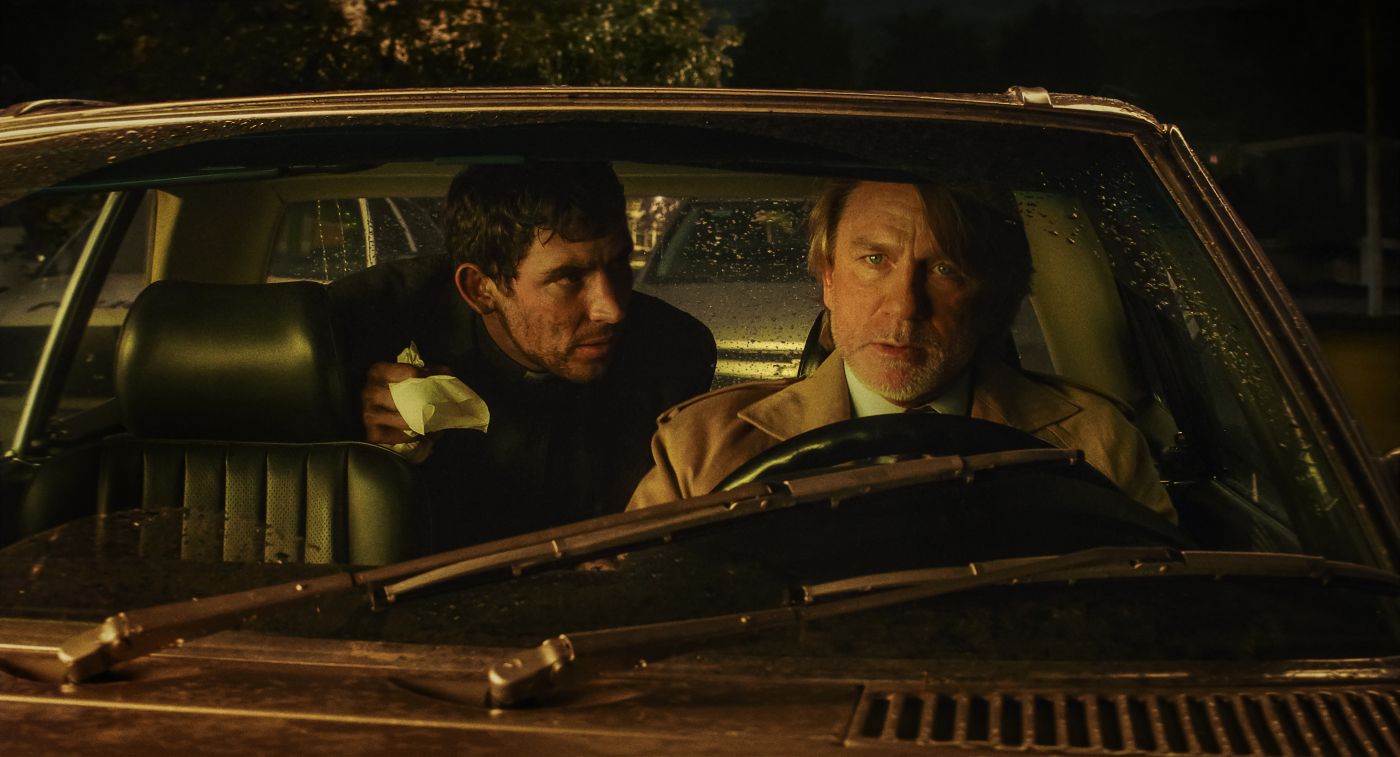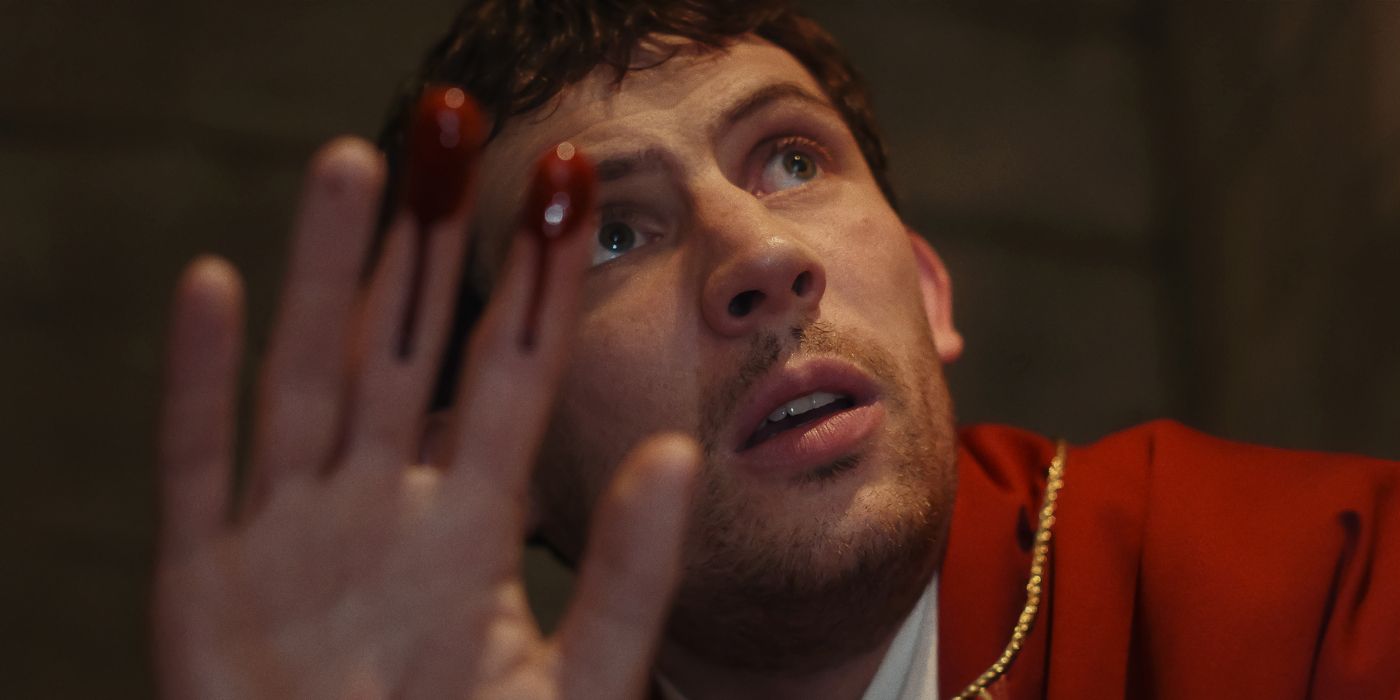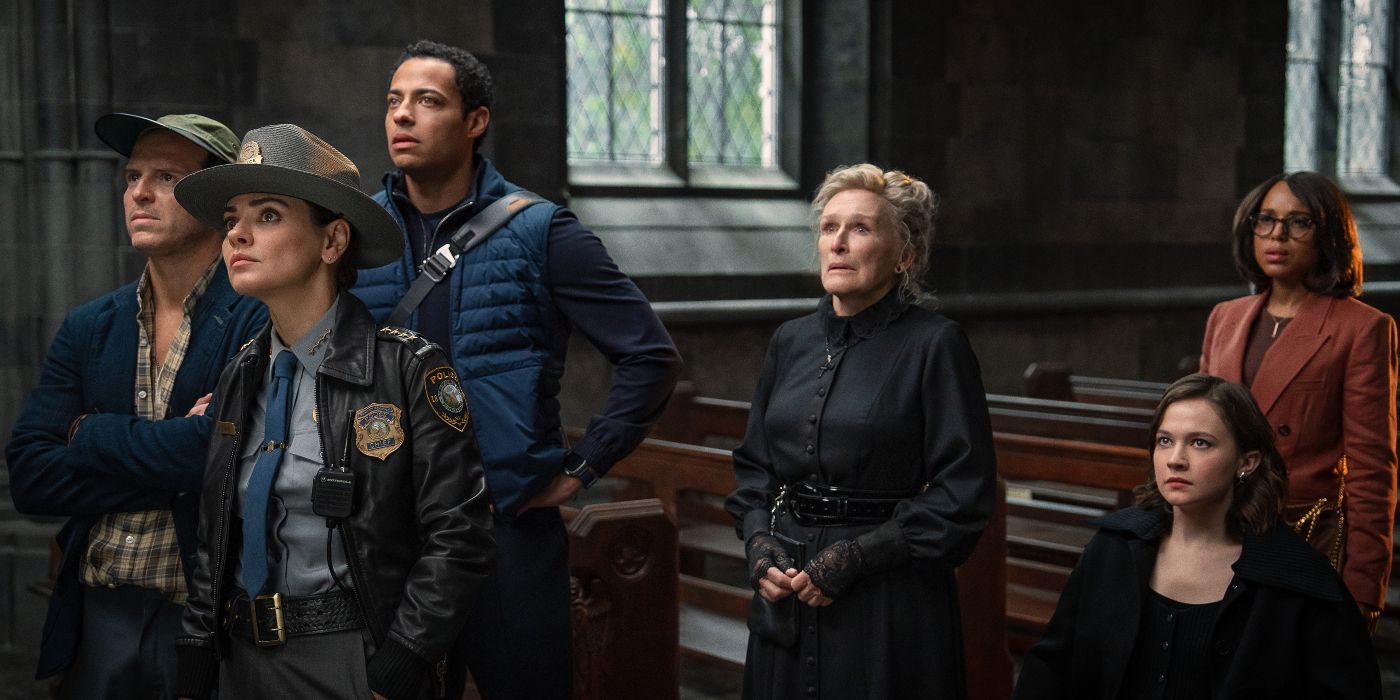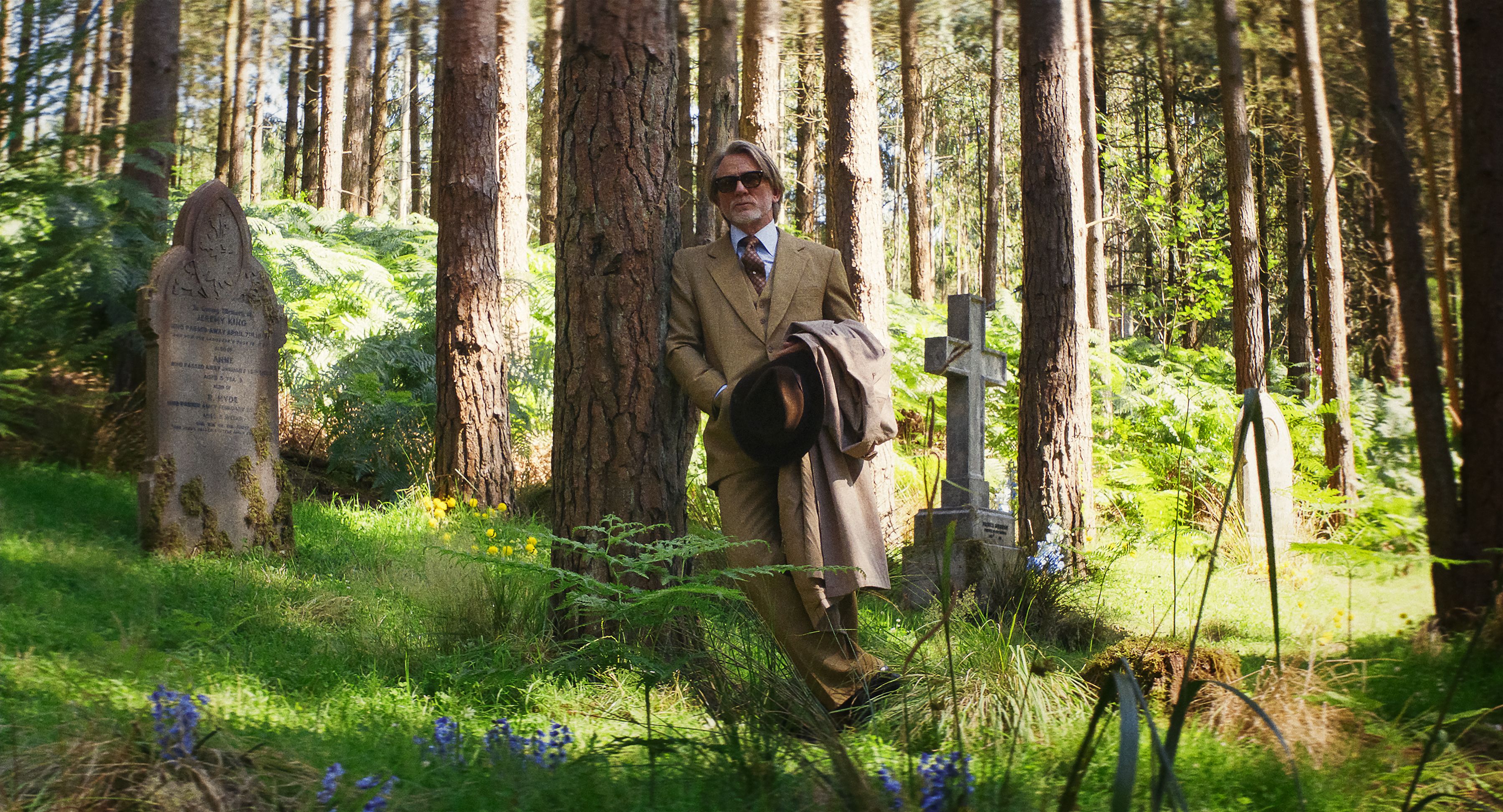
Rian Johnson’s Wake Up Dead Man is a unique murder mystery that subtly explores spiritual themes. While it doesn’t preach, the film—which draws inspiration from the atmospheric style of Edgar Allan Poe and the detective stories of G.K. Chesterton—encourages viewers to consider the possibility of the spiritual within ordinary life. It’s a refreshing addition to the Knives Out series.
Johnson’s film revisits familiar but important ideas: that true happiness isn’t about wealth, that chasing power can destroy you, and that forgiveness is always possible. It’s a deeply spiritual film, but what’s truly impressive is how Johnson weaves these themes into a classic genre story. The result is a movie that’s both exciting and feels like a fresh take on the whodunit, making it a thrilling and surprisingly moving experience.
It’s a joy to hear Daniel Craig return as Detective Benoit Blanc after a three-year absence, delivering lines like, “I don’t see a guilty man in torment but an innocent tormented by guilt.” The film starts by focusing on Craig, but then spends the first half-hour introducing a large group of new characters. It’s a challenge to connect with so many unfamiliar faces without Blanc’s familiar commentary, but Josh O’Connor as the young priest, Jud Duplenticy, quickly earns the audience’s trust.
Jud wrote to Benoit explaining the problems at his church, Our Lady of Perpetual Fortitude (a truly memorable name!). Jud, a former boxer, became a church caretaker after accidentally causing a man’s death in the ring. Despite his new role, his old instincts haven’t disappeared – he was transferred to Perpetual Fortitude after punching a deacon, who, according to his supervisor, was simply unpleasant.

Netflix
I found myself really captivated by the church scenes, led by Josh Brolin’s Monsignor Wicks. It felt less like a place of worship and more like…well, a different kind of intense gathering. Wicks preaches with this furious energy, almost like he’s trying to start a riot instead of a service. When challenged about it, he argues that anger is a necessary tool for regaining lost ground – a sentiment that immediately brought to mind controversial pastors like Mark Driscoll or James McDonald, who often frame faith as a battle. Frankly, it’s a style of leadership that deeply unsettles Jud. He believes true change comes from God’s grace, not from fear or fury, and that this kind of aggressive approach has no place within the church walls.
The supporting cast in Monsignor Wicks’ church is filled with familiar faces, and watching their different personalities interact is always enjoyable. Unlike Glass Onion, where the characters were almost always together, Wake Up Dead Man is more like the original Knives Out – the ensemble isn’t often in the same scene. This actually makes their shared moments even more compelling. The group includes Martha (Glenn Close), the church’s bookkeeper; Samson (Thomas Haden Church), the groundskeeper; lawyer Vera (Kerry Washington) and her son Cy (Daryl McCormack); the town doctor, Nat (Jeremy Renner); author Lee Ross (Andrew Scott); and cellist Simone (Cailee Spaeny). Many of the characters feel like recognizable types brought to life by famous actors, and it’s fun to see those actors play against their usual roles. If you’ve ever wanted to see Andrew Scott as a paranoid writer who’s built a moat around his house with his book money, this movie is for you.

Netflix
When a major disagreement divides Wicks and Jud, Wicks is unexpectedly killed during the town’s Good Friday service, immediately making Jud the main suspect. Detective Blanc and local police chief Geraldine (Mila Kunis) begin investigating, but some wonder if Wicks’ death wasn’t a natural event, but an act of God. The story initially appears to be heading in a similar direction as Kenneth Branagh’s A Haunting in Venice, exploring the conflict between faith and reason. Blanc confidently states his belief in logic and rejects any supernatural explanation for Wicks’ death. However, the script delves into a more profound idea: that we often overlook the sacredness present in everyday life. While religious institutions are often criticized for prioritizing spiritual matters over physical needs (and the empty repetition of “thoughts and prayers” after tragedies), the story ultimately champions a faith that embraces the physical world and lived experience.
There’s a poignant moment when Jud, in the middle of getting a crucial piece of information from someone in his congregation, is asked to pray for her. It’s terrible timing, and Blanc is frustrated when Jud agrees. While it doesn’t help the case, it shows Jud’s dedication to caring for everyone. As a priest, he feels obligated to be there for all people, much like the actor O’Connor himself can adapt to any role. But beneath his service lies a strong and constant desire to help others. This could be seen as simple or unrealistic, but O’Connor portrays it with genuine sincerity. Of all the characters, O’Connor’s is the most relatable; he’s flawed and quick to anger, yet consistently strives to be a better person. This makes his commitment to service and sacrifice more meaningful than the actions of those who appear outwardly more devout.
What’s truly striking is how Jud maintains such a calm and forgiving demeanor – it seems almost beyond human capability without divine help. The people in Wick’s church are clearly consumed by resentment, both towards each other and towards life in general, and it’s visibly damaging them. It’s famously difficult for the wealthy to find spiritual fulfillment, but it’s even harder to convince people who have long embraced anger and self-pity to consider the healing power of forgiveness. Changing deeply ingrained habits is incredibly difficult, as it’s much easier to stick with what’s familiar. Jud feels responsible for solving the murder, but he also feels a strong obligation to care for the emotional and spiritual well-being of his congregation.

Netflix
While the film explores deep ideas, strong ideas aren’t enough – a movie also needs to be exciting to watch. Thankfully, the cinematography by Steve Yedlin is exceptional. The church itself feels vast and full of hidden depths, and the way light streams through the stained glass is beautiful. Director Johnson and his team cleverly use light and shadow, and observant viewers might even find clues about the mystery hidden within the lighting choices when they watch the film again.
When Benoit and Jud first meet, Jud observes Blanc’s reaction to the surprisingly modern features of his church. The young priest playfully suggests that today’s churches resemble Disneyland more than Notre Dame, pointing out that the pageantry and traditions are designed to tell stories – stories that can either mislead us or reveal a deeper truth. This observation cleverly reflects how churches have become commercialized, but also acknowledges our universal human need for connection to something bigger than ourselves and a meaningful narrative for our lives. In Wake Up Dead Man, Johnson directly addresses the audience, inviting us to consider the stories we embrace and whether they can inspire us to look beyond our own concerns. Perhaps, he suggests, through these stories we might even find a connection to the divine.
Read More
- Clash Royale Best Boss Bandit Champion decks
- Vampire’s Fall 2 redeem codes and how to use them (June 2025)
- Mobile Legends January 2026 Leaks: Upcoming new skins, heroes, events and more
- M7 Pass Event Guide: All you need to know
- Clash Royale Furnace Evolution best decks guide
- Clash Royale Season 79 “Fire and Ice” January 2026 Update and Balance Changes
- World Eternal Online promo codes and how to use them (September 2025)
- Clash of Clans January 2026: List of Weekly Events, Challenges, and Rewards
- Best Arena 9 Decks in Clast Royale
- Best Hero Card Decks in Clash Royale
2025-11-25 20:18